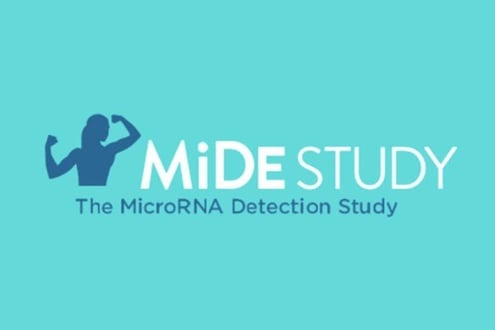RAD51C: Options for Managing Risk
Risk Management for People with Inherited Mutations
People with mutations have options for managing their increased cancer risk. Experts at the National Comprehensive Cancer Network (NCCN) created guidelines for people with a mutation to manage their cancer risk.
We recommend that you speak with a genetics expert who can look at your personal and family history of cancer and can help you decide on a plan for managing your risk.
NCCN guidelines for specific cancers are listed below. NCCN also recommends that people with an receive education on the signs and symptoms of these cancers.
People with a mutation may also qualify for clinical trials looking for more effective screening or prevention for cancer.
|
Beginning Age |
Recommendation |
Additional Information |
|
25 |
Learn to be aware of changes in your breasts. |
Self exams may be most informative at the end of the menstrual cycle. |
|
25 (or earlier based on youngest age of breast cancer in the family) |
Breast exam by doctor (also known as a clinical breast exam) every 6-12 months. |
|
|
40 (or earlier based on youngest age of breast cancer in the family) |
Yearly . |
|
|
40 (or earlier based on youngest age of breast cancer in the family) |
Discuss the benefits, risks and costs of yearly breast with and without contrast with your doctor. |
|
|
No set age |
Discuss the benefits, risks and costs of medications to lower the risk for breast cancer with your doctor. |
Tamoxifen or other estrogen-blocking drugs may lower breast cancer risk. Medications or vaccines are being studied in clinical trials. |
|
No set age |
More research is needed to show whether people with inherited mutations benefit from risk-reducing mastectomy. Discuss with your doctor about the option of risk-reducing mastectomy based on your personal and family history of cancer. |
Risk-reducing mastectomy lowers breast cancer risk by 90%, but has not been shown to improve survival. Even after double mastectomy, some breast tissue, and therefore cancer risk remains. Clinical breast exam should be continued after risk-reducing mastectomy. |
|
75 |
Have a discussion with your doctor about whether to continue, stop or change breast screening. |
|
|
Source: NCCN Guidelines: Genetic/Familial High-Risk Assessment: Breast, Ovarian, Pancreatic, , v. 1, 2026. |
||
|
Beginning Age |
Recommendation |
Additional Information |
|
45 - 50 |
Risk-reducing removal of ovaries and (). Timing of surgery should take into account plans to have children. |
|
|
45 - 50 |
Have a discussion with your doctor about the risks, benefits and costs of removing your uterus (hysterectomy) at the time of . |
The following factors may affect your decision about hysterectomy at the time of RRSO:
|
|
Before age 50 |
Experts believe that most ovarian cancers begin in the . Researchers are studying whether the removal of the only (), while delaying until closer to the age of natural menopause is a safe option for lowering risk in people who are not ready to remove their ovaries. Guidelines recommend that people interested in this approach speak with their doctor about the benefits and risks, and consider enrolling in a research study. |
|
|
No set age |
Speak with your doctor about the benefits, risks and timing of oral contraceptives or intrauterine devices (IUD) to lower the risk for ovarian and cancers. |
|
|
No set age |
Become aware of ovarian and primary peritoneal cancer symptoms. Report any symptoms that persist for several weeks and are a change from normal to your doctor. Routine ovarian cancer screening using transvaginal and a blood test has not shown benefit and is not recommended. |
Symptoms of ovarian cancer include:
|
|
Source: NCCN Guidelines: Genetic/Familial High-Risk Assessment: Breast, Ovarian, Pancreatic, , v. 1, 2026. |
||
Other cancer screening and prevention
There isn’t enough research to show that people with a mutation benefit from extra screening or prevention for other types of cancer. For this reason, experts recommend following general population screening guidelines and considering your family history when managing these risks. National guidelines exist for screening the following cancers:
More Resources
Participate in Prevention Research
Below are some of our featured research studies looking at new ways to screen for, prevent or intercept cancer in people with mutations. To search for additional studies, visit our Search and Enroll Tool.
Screening Study for Men at High Genetic Risk for Prostate Cancer
Clinicaltrials.gov identifier: NCT03805919
Prostate Cancer Genetic Risk Evaluation and Screening Study (PROGRESS)
Clinicaltrials.gov identifier: NCT05129605
Helping Latinas Understand Their Risk for Breast Cancer and Get Breast Cancer Care
Clinicaltrials.gov identifier: NCT05483283




